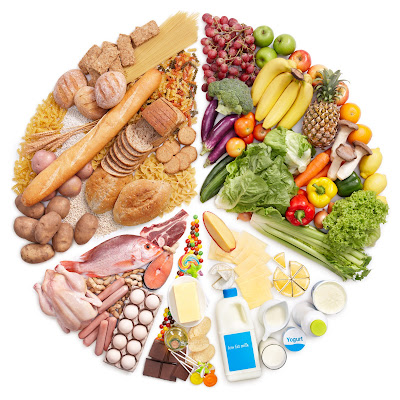10 Practical Tips for a Healthier Diet
In the hustle and bustle of daily life, maintaining a balanced diet can often feel like a daunting task. However, ensuring that we receive the proper nutrients is essential for overall health and well-being. A balanced diet provides the body with the necessary vitamins, minerals, and macronutrients it needs to function optimally. Here, we'll explore how individuals can ensure they are achieving balanced nutrition in their daily diet, along with practical tips for maintaining this balance.
Understanding Balanced Nutrition:
Balanced nutrition involves consuming a variety of foods that provide essential nutrients in appropriate proportions. This includes:A. Macronutrients: Carbohydrates, proteins, and fats are the main macronutrients required by the body. Carbohydrates provide energy, proteins support muscle growth and repair, and fats are essential for hormone production and cell function.
B. Micronutrients: Vitamins and minerals play vital roles in various bodily functions, including immune function, bone health, and metabolism. Consuming a diverse range of fruits, vegetables, whole grains, and lean proteins ensures adequate intake of micronutrients.
Practical Tips for Maintaining a Balanced Diet:
Eat a Variety of Foods:
Incorporate a diverse range of foods into your meals to ensure you receive a wide array of nutrients. Aim to include fruits, vegetables, whole grains, lean proteins, and healthy fats in your diet.
Portion Control:
Be mindful of portion sizes to prevent overeating. Use smaller plates and bowls to help control portion sizes, and listen to your body's hunger and fullness cues.
Include Fruits and Vegetables:
Aim to fill half of your plate with fruits and vegetables at each meal. These nutrient-dense foods are rich in vitamins, minerals, and antioxidants, and they can help support overall health.
Choose Whole Grains:
Opt for whole grains such as brown rice, quinoa, oats, and whole wheat bread over refined grains. Whole grains are higher in fiber and provide more sustained energy.
Prioritize Lean Proteins:
Include sources of lean protein in your diet, such as poultry, fish, tofu, beans, lentils, and legumes. These protein sources are lower in saturated fat and provide essential amino acids necessary for muscle health.
Incorporate Healthy Fats:
Include sources of healthy fats in your diet, such as avocados, nuts, seeds, and olive oil. These fats support heart health and help with nutrient absorption.
Limit Added Sugars and Processed Foods:
Reduce your intake of foods and beverages high in added sugars, such as sugary drinks, sweets, and processed snacks. Instead, opt for whole, minimally processed foods whenever possible.
Stay Hydrated:
Drink plenty of water throughout the day to stay hydrated. Water is essential for digestion, nutrient absorption, and overall bodily function.
Plan Ahead and Prepare Meals:
Take the time to plan your meals and snacks for the week ahead. Prepare healthy meals in advance to have nutritious options readily available when hunger strikes.
Practice Mindful Eating:
Pay attention to your body's hunger and fullness cues, and eat slowly to savor your food. Avoid distractions such as screens while eating to fully enjoy your meals and prevent overeating.
In conclusion, achieving balanced nutrition in your daily diet is achievable with mindful food choices and lifestyle habits. By incorporating a variety of nutrient-dense foods, practicing portion control, and prioritizing whole, minimally processed foods, individuals can nourish their bodies and support overall health and well-being. By following these practical tips, you can embark on a journey towards a healthier, more balanced diet and enjoy the benefits of improved vitality and wellness.

.png)


Comments
Post a Comment